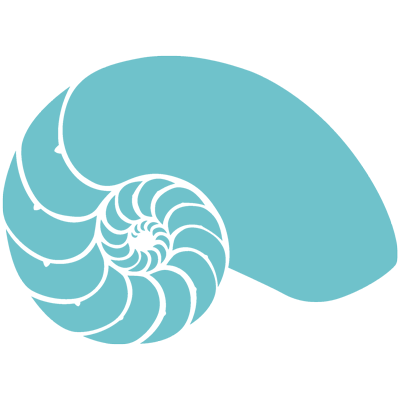Drugs with Tinnitus Side Effects
The following is a list of drugs which potentially can have tinnitus as a side-effect as indicated in the 1995 Physicians Desk Reference and distributed by the American Tinnitus Association.
Your physician should always be consulted about questions before any changes are made in your medication. Also, it should be abundantly clear that just because tinnitus develops while you are on one of the drugs, it does not mean that the tinnitus is actually due to the drug. Similarly, if you do have tinnitus, and one of these drugs is indicated for treatment of an unrelated disorder, your tinnitus may not necessarily get worse. Bring the situation to the attention of your physician, and make a mutual decision in your best interest.
The absence of incidence data [ * ] means there was none given, and/or it is unknown.
A
Accutane [less than 1%]
Acromycin V
Actifed with Codiene Cough Syrup
Adalat CC [less than 1%]
Alferon N [one patient]
Altace [less than 1%]
Ambien [infrequent]
Amicar [occasional]
Anatranil [4-5%]
Anaprox and Anaprox DS [3-9%]
Anestacon [among most common]
Ansaid [1-3%]
Aralen Hydrochloride [one Patient]
Arithritis Strength BC Powder
Asacol
Ascriptin A/D
Ascriptin
Asendin [less than 1%]
Aspirin [among most frequent]
Atretol
Atrofen
Atrohist Plus
Azactam [less than 1%]
Azo Gantanol
Azo Gantrisin
Azulfidine [rare]
B
BC Powder
Bactrim DS
Bactrim I.V.
Bactrim
Blocadren [less than 1%]
Buprenex [less than 1%]
BuSpar [frequent]
C
Cama
Capastat Sulfate
Carbocaine Hydrochloride
Cardene [rare]
Cardioquin
Cardizem [less than 1%] '' CD [less than 1%] '' SR [less than 1%]
Cardura [1%]
Cartrol [less common]
Cataflam [1-3%]
Childrens Advil [less than 3%]
Cibalith-S
Cinobac [less than 1 in 100]
Cipro [less than 1%]
Claritin [2% or less]
Clinoril [greater than 1%]
Cognex
Corgard [1-5 of 1000 patients]
Corzide [ '' ]
Cuprimine [greater than 1%]
Cytotec [infrequent]
D
Dalgan [less than 1%]
Dapsone USP
Daypro [greater than 1% less than 3%]
Dasprin
Deconamine
Demadex
Depen Titratable
Desferal Vials
Desyrel & Desyrel Dividose [1.4%]
Diamox
Dilacor XR
Dipentum [rare]
Diprivan [less than 1%]
Disalcid
Dolobid [greater than 1% in 100]
Duranest
Dyphenhydramine [Nytol, Benydrl, etc]
Dyclone
Dasprin
Dynabac
E
Easprin
Ecotrin
Edecrin
Effexor [2%]
Elavil
Eldepryl
Emcyt
Emla cream
Empirin with Codiene
Erythromycin
Engerix-B
Equagesic
Esgic-plus [infrequent]
Eskalith
Ethmozine [less than 2%]
Etrafon
F
Fansidar
Feidene [1-3%]
Fioricat with Codeine [infrequent]
Flexeril [less than 1%]
Floxin [less than 1%]
Foscavir [1-5%]
Fungijzone
G
Ganite
Gantanol
Gantrisin
Garamycin
Glauctabs
H
HIVID [less than 1%]
Halcion [rare]
Hyperstat
Hytrin [at least 1%]
I
Ibuprofen [less than 3%] [Advil, etc.]
Ilosone
Imdur [less than or equal to 5%]
Indocin [greater than 1%]
Intron A [up to 4%]
K
Kerione [less than 2%]
L
Lariam [among most frequent]
Lasix
Legatrin
Lncocin [occasional]
Lioresal
Lithane
Lithium Carbonate
Lithobid
Lithonate
Lodine [greater than 1% less than 3%]
Lopressor Ampuis
Lopressor DCT [1 in 100]
Lopressor
Loreico
Lotensin HCT [0.3-1%]
Ludiomil [rare]
M
Magnevist [less than 1%]
Marinol (Dronabinol) [less than 1%]
Marcaine Hydrochloride
Marcaine Spinal
Maxaquin [less than 1%]
Mazicon [less than 1%]
Meclomen [greater than 1%]
Marcaine Hydrochloride
Marcaine Spinal
Maxaquin [less than 1%]
Mazicon [less than 1%]
Meclomen [greater than 1%]
Methergine [rare]
Methotrexate [less common]
Mexitil [1.9% to 2.4%]
Midamor [less than or equel to 1%]
Minipress [less than 1%]
Minizide [rare]
Mintezol
Moduretic
Mono-Cesac
Monopril [0.2-1%]
Monopril [0.2-1%]
Motrin [less than 3%]
Mustargen [infrequent]
Mykrox [less than 2%]
MZM [among most frequent]
N
Nalfon [4.5%]
Naprosyn [3-9%]
Nebcin
Neptazane
Nescaine
Netromycin
Neurontin [infrequent]
Nicorette
Nipent [less than 3%]
Nipride
Noroxin
Norpramin
Norvasc [0.1-1%]
O
Omniscan [less than 1%]
Ornade
Orthoclone OKT3
Orudis [greater than 1%]
Oruvail [greater than 1%]
P
P-A-C Analgesic
PBZ
Pamelor
Parnate
Paxil [infrequent]
Pedia-Profen [greater than 1% less than 3%]
Pediazole
Penetrex [less than 1%]
Pepcid [infrequent]
Pepto-Bismol
Periactin
Permax [infrequent]
Phenergan
Phrenilin [infrequent]
Piroxicam [1-3%]
Plaquenil
Platinol
Plendil [0.5% or greater]
Pontocaine Hydrochloride
Prilosec [less than 1%]
Primaxin [less than 2%]
Prinvil [0.3-1%]
Prinzide [0.3-1%]
Procardia [1% or less]
ProSam [infrequent]
Proventil [2%]
Prozac [infrequent]
Q
Questran
Quinaglute
Quinamm
Quinidex
Q-vel Muscle Relaxant Pain Reliever
R
Recombivax HB [less than 1%]
Relafen [3-9%]
Rheumatrex Methotrexate [less common]
Rifater
Risperdal [rare]
Romazicon [less than 1%]
Ru-Tuss
Rythmol
S
Salflex
Sandimmune [2% or less]
Sedapap [infrequent]
Sensorcaine
Septra
Sinequan [occasional]
Soma Compound
Sporanox [less than 1%]
Stadol [3-9%]
Streptomycin Sulfate
Sulfadiazine
Surmontil
T
Talacen [rare]
Talwin [rare]
Tambocor [1% or less than 3%]
Tavist and Tavist-D
Tegretol
Temaril
Tenex [3% or less]
Thera-Besic
Thiosulfil Forte
Ticlid [0.5-1%]
Timolide
Timoptic
Tobramycin
Tofranil
Tolectin [1-3%]
Tonocard [0.4-1.5%]
Toprol XL
Toradol [1% or less]
Torecan
Trexan
Triaminic
Triavil
Trilisate [less than 20%]
Trinalin Repetabs
Tympagesic Ear Drops
U
Ursinus
V
Vancocin HCI [rare]
Vantin [less than 1%]
Vascor [up to 6.52%]
Vaseretic [0.5-2%]
Vasotec [0.5-1%]
Vivactil
Voltqaren [1-3%]
W
Wellbutrin
X
Xanax [6.6%] - - Also can be very helpful
Xylocaine [among most common]
Z
Zestril [0.3-1%]
Zestoretic [0.3-1%]
Ziac
Zoleft [1.4%]
Zosyn [less than 1%]
Zyloprim [less than 1%]
Your physician should always be consulted about questions before any changes are made in your medication. Also, it should be abundantly clear that just because tinnitus develops while you are on one of the drugs, it does not mean that the tinnitus is actually due to the drug. Similarly, if you do have tinnitus, and one of these drugs is indicated for treatment of an unrelated disorder, your tinnitus may not necessarily get worse. Bring the situation to the attention of your physician, and make a mutual decision in your best interest.
